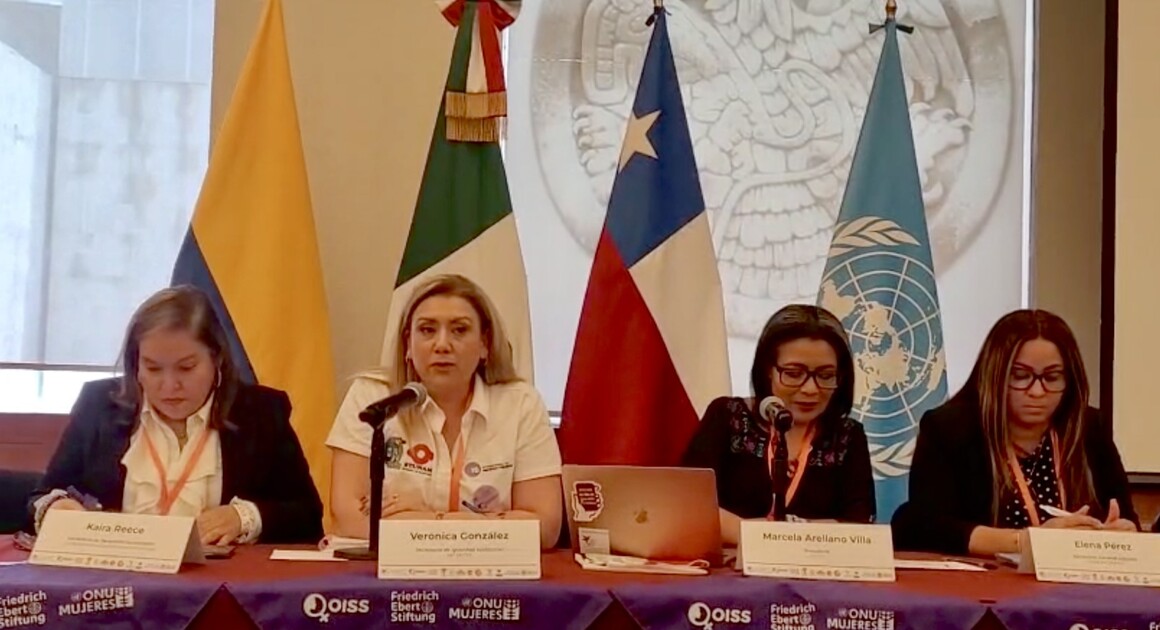Regional Conference on Women in Latin America and the Caribbean PSI members defend care as a human right

Within the framework of ECLAC's XV Regional Conference on Women in Latin America and the Caribbean, which is taking place in Mexico City until Friday 15, PSI unions are raising the voice of women to demand structural change.

Nayareth Quevedo Millán
This Monday at the round table Women Workers and Feminist Trade Unionism: towards a care agenda that transforms the world of work in Latin America, convened by the Observatory of Substantive Equality in Trade Unions, where Verónica González, Secretary for Substantive Equality of the National Union of Social Security Workers (SNTSS) of Mexico, a PSI affiliate, participated.
In her speech, González stressed that care work, despite being indispensable to the economy and social welfare, has historically been made invisible, devalued and feminized. "It is a task that falls disproportionately on women, perpetuating gender inequality and job insecurity," she said. This reality - she added - has been aggravated by insufficient state presence and fiscal adjustment policies that reduce public spending, leading to a profound crisis in the social organization of care.
The leader also stressed the importance of trade unionism being present at the tables where public care policies are defined. She pointed out that, through collective bargaining, it has been possible to raise levels of professionalization, improve salary scales and guarantee decent working conditions for social care workers.
Public Services International (PSI), of which the SNTSS is an active member, maintains an unwavering premise: care is not a commodity. International experience shows that its privatization puts people's lives at risk and makes those who provide it precarious, a fact that the pandemic made painfully clear. For this reason, a profound reconstruction of the social organization of care is being promoted to reposition it as a fundamental human right, a public good and a pillar of social development, financed by progressive tax systems and unlinked to profit.
In this context, González highlighted the SNTSS's commitment to the categorization, professionalization and salary valuation of social care workers, demonstrating that union action is decisive in reversing decades of inequality. The recent advisory opinion of the Inter-American Court of Human Rights, which recognizes care as an autonomous human right, was pointed out as a historical milestone that validates these demands and places a non-delegable responsibility on the States.
The Mexican leader was clear: "Governments must recognize trade unions as strategic allies in building universal, quality and gender-just care systems. Care must be a pillar of public policy, not a margin of the market".
The agenda promoted by the SNTSS, supported by PSI, is based on four concrete axes:
Binding state commitments to guarantee access to and quality of care.
Sufficient financing and fiscal justice to sustain its public nature.
Strict regulation of the private sector as a complementary actor and not a substitute.
Protagonistic trade union participation in the design and monitoring of care systems.
Feminist trade unionism not only denounces inequality: it proposes a model where care is recognized as an engine of development, redistributed equitably and protected from commodification. "Without care there is no life, and without gender justice there is no real democracy," said Verónica González.